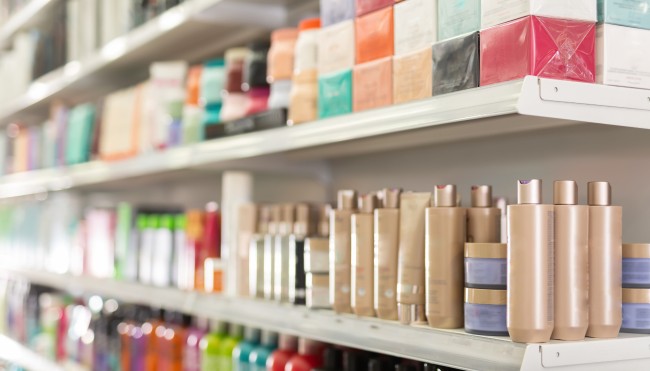What defines "good" cosmetics?
In this article CodeCheck's scientific director Dr. Ruta Almedom explains whether natural cosmetics are really always the better choice and why "vegan" does not necessarily mean "cruelty-free".
What does "good cosmetics" actually mean for CodeCheck?
"Sustainability is a particularly important aspect of ‘good cosmetics’ for us. For CodeCheck, this includes sustainability with regard to the environment, meaning the avoidance of substances such as microplastics and other synthetic poorly biodegradable polymers, as well as siloxanes or non-certified palm oil," says Dr. Almedom. "But also sustainability in relation to health, which means for us not to use endocrine active substances or allergenic fragrances. For CodeCheck, good cosmetics are therefore products that do not contain any potentially harmful substances for the environment or your health".
But of course, the individual’s needs also determine which cosmetics are "good". Some do not tolerate fragrances, others do not want mineral oil-based ingredients. "But unfortunately it is becoming increasingly difficult for us today to find our way through the thicket of product promises and claims," says the ingredients expert.
What distinguishes natural cosmetics from conventional cosmetics?
Various product promises suggest ingredients of natural origin, for example: "100 % plant based active ingredients", "with natural ingredients", or "all herbal ingredients from organic farming". "However, such descriptions do not exclude that the product may also contain synthetic substances or ingredients of concern for humans and the environment".
As the name suggests, ‘certified natural cosmetics’ contain ingredients that are identical or close to naturally derived substances. Among other things, the emphasis is also placed on sustainability in terms of content, packaging, and production. "Natural cosmetics should not be understood as ‘natural’ in the sense of ‘unchanged’, because the ingredients used may also be chemically modified, which is mostly a relevant step to allow formulating with them.", explains Dr. Almedom.
In contrast to conventional cosmetics, the use of certain substances in natural cosmetics is restricted. These can include petroleum-based raw materials, non-renewable raw materials, genetically modified organisms, synthetic fats, oils, fragrances, silicones, microplastic particles, and other synthetic plastics. "Nevertheless, these specifications can vary from product to product depending on the label and its standards, as there is no general set of regulations to date. Natural cosmetics often contain ingredients of plant, animal, or mineral origin. These include certain oils, waxes, fats, extracts, and essential oils," explains Dr. Almedom.
Is natural cosmetics always "better" than conventional cosmetics?
"It depends on the individual’s needs," says Dr. Almedom. "Often, fragrances are the cause of allergies to cosmetic products. Synthetic fragrances are therefore among the ingredients that must not be included in natural cosmetics. However, ‘natural cosmetics’ is no guarantee for a ‘harmless’ product, because the essential oils used here can also be allergenic, for example".
"Particularly in the case of plant extracts, a safety assessment can be difficult, as they are often complex mixtures of a large number of substances and their composition (depending on harvest, origin, etc.) can vary. A possible allergenic effect must also be taken into account for both synthetic substances and natural substances. Chamomile, for example, is associated with many positive properties. Natural cosmetic manufacturers like to use chamomile as a whole extract. In contrast, conventional cosmetics use the active ingredient bisabolol isolated from chamomile, which is less allergenic than the extract," explains CodeCheck's scientific director.
"Even the believability of product promises does not depend on whether a product is classified as natural or conventional. It rather depends on the specific ingredients and their effectiveness as well as the individual condition. Sustainable skincare, for example, starts with nutrition, but also includes exercise, less stress, abstaining from cigarettes, and physical protection from the sun- to name just a few aspects of care.“
Which substances should be avoided?
Especially with skincare products, first it’s necessary to find out what your own skin needs and second, to check what is contained in the product.
"It is particularly recommended to pay attention to the choice of preservatives, colorants and fragrances, emulsifiers or surfactants. In case of skin with a tendency to dryness it’s important to check the surfactants used: SLS and ALS are frequently used synthetic surfactants which may dry out the skin especially in case of frequent use. Since they are mineral oil-based ingredients, they are rarely found in certified natural cosmetics. The latter resort to milder surfactants some of which are produced from sugar residues and higher fatty acids (like soybean oil, coconut oil, or even palm and palm kernel oil). Still, there are also soaps that are made from animal fats," says Dr. Almedom.
"People with sensitive skin should pay attention to allergenic fragrances like hexyl cinnamal, linalool, benzyl salicylate, butylphenyl methylpropional, eugenol, and geraniol. They may also react to essential oils and fragrances in natural cosmetics and should generally use fragrance-free products.”
Environmentally relevant ingredients such as microplastics and other poorly biodegradable polymers are also used in conventional cosmetics under a wide variety of terms. Through cosmetics they get into our waste water and from there into open waters or fields where they can not only enter our food chain, but also remain in our environment for hundreds of years with untreated effects. With the help of CodeCheck these ingredients can be identified and avoided.
Do seals offer meaningful guidance?
"This is depending on the individual needs, says Dr. Almedom. In fact, the use of numerous seals and labels to evaluate sustainable and healthy products leads to increased confusion among consumers". For example, certified natural cosmetics may be not be suitable for allergy sufferers or vegans as they may contain ethereal fragrances or animal substances. On the other hand, ‘vegan’ cosmetics doesn’t signify that animal testing has not been carried out".
"In addition, many manufacturers created their own seals and these can hardly be distinguished from independent certifications. This situation requires a great deal of initiative and research from consumers themselves to find out what is behind the certifications," Dr. Almedom points out. But you can also simply scan the barcode with the CodeCheck App to obtain valuable product information.




